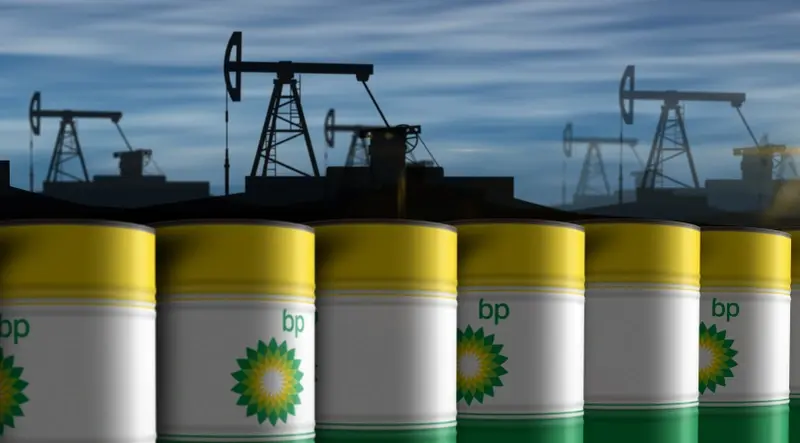
The FTSE 100 closed up on Monday, boosted by blue-chip oil firms responding positively to the ousting of long-standing Syrian ruler Bashar al-Assad.
The FTSE 100 index closed up 43.47 points, 0.5%, at 8,352.08. The FTSE 250 ended down 9.73 points at 21,049.27, and the AIM All-Share closed up 2.63 points, 0.4%, at 740.85.
The Cboe UK 100 ended up 0.5% at 838.25, the Cboe UK 250 closed up 0.1% at 18,544.99, and the Cboe Small Companies ended up 0.7% at 16,325.70.
In European equities on Monday, the CAC 40 in Paris ended up 0.7%, boosted by strength in luxury goods stocks. The DAX 40 in Frankfurt ended down 0.2%.
In New York, stocks were lower at the time of the London close. The DJIA was down 0.2%, the S&P 500 index 0.4% lower, and the Nasdaq Composite slipped 0.5%.
China’s top leadership including President Xi Jinping on Monday called for a ‘relaxed monetary policy’ next year, state media reported, as officials gathered in Beijing to discuss plans to boost a shaky economy.
The announcement came too late to boost Shanghai shares, but Hong Kong jumped in the final hour of trading, with the Hang Seng closing up 2.8%.
During a meeting of the ruling Communist Party’s Politburo, China’s top decision making body, officials said that next year they should ‘implement a more active fiscal policy and an appropriately relaxed monetary policy’, official news agency Xinhua said.
Chinese President Xi and other top leaders met Monday to hash out economic plans for 2025.
‘We must vigorously boost consumption, improve investment efficiency, and comprehensively expand domestic demand,’ Xinhua quoted officials as having said.
The FTSE 100’s top performers included Antofagasta up 5.6%, Glencore up 4.6%, Rio Tinto up 3.8% and Anglo American 3.9%.
Oil giants BP and Shell rose 4.1% and 2.5% respectively on the ousting of Syrian president Bashar al-Assad over the weekend.
In addition, BP said it will ‘significantly reduce’ investment in renewable energy through to 2030, as it combines its offshore wind business with that of Tokyo-based power company Jera Co Inc.
The equally-owned joint venture, Jera Nex BP, is set to advance the companies’ existing wind projects and create one of the world’s largest global offshore wind businesses.
However, the standalone business will ‘significantly reduce BP’s anticipated investment into renewables through the rest of this decade’, BP said in a statement.
Together the companies will invest up to $5.8 billion by 2030, with BP contributing $3.25 billion.
It marks a sharp drop from previous suggestions that BP would invest around $10 billion in offshore wind between 2023 and 2030.
Brent oil was quoted at $72.43 a barrel at the London equities close Monday, up from $71.22 late Friday.
This week sees US consumer price inflation figures and several central bank interest rate calls.
Bank of America expects core CPI inflation to decelerate slightly to 0.2% on-month after three consecutive 0.3% on-month prints. As a result, the annual rate should tick down a tenth to 3.2%, it projects.
BoFA expects the annual headline rate to remain unchanged at 2.6%.
‘A key factor behind our forecasted deceleration in core inflation is an expected decline in airfares. After surging in each of the last three months, we expect airfares to fall by 1% on-month,’ it added.
‘The details of the report should show upside risks to inflation remain limited for the time being,’ BofA thinks.
‘If our forecast proves correct, it would increase our conviction that the Fed cuts rates by 25bp at its December meeting.’
Along with the US CPI print, this week sees four G10 central bank policy decisions, in Australia on Tuesday, Canada on Wednesday, and Switzerland and Europe on Thursday.
Societe Generale analyst Kit Juckes commented: ‘A 25bp ECB cut is almost a done deal and anything else would be a huge surprise. We expect 25bp cuts at each of the next four meetings.’
The pound was quoted higher at $1.2785 at the London equities close on Monday, compared to $1.2748 at the close on Friday.
The euro stood at $1.0576 up against $1.0569 at the same time on Friday. Against the yen, the dollar was trading higher at JP¥151.19 compared to JP¥149.83 late Friday.
Morgan Stanley thinks it is time to sell the US dollar, believing much of the greenback-positive story is ‘in the price’.
The investment bank thinks the risk/reward looks favourable for USD shorts, with various negative fundamental and technical catalysts approaching.
‘A weaker USD is the ’pain trade’ into year-end,’ it said.
Morgan Stanley has ’buy’ calls on AUD/USD and GBP/USD, noting both benefit from positive local stories, more limited exposures to trade concerns, asymmetric positioning and attractive technicals.
The broker sees some upside risks to EUR/USD, although medium-term fundamentals remain challenged.
Elsewhere in London, WPP jumped 2.8% after confirmation Omnicom has agreed to buy Interpublic in a $13 billion all-share deal creating the world‘s largest advertising agency in revenue terms.
Weir rose 2.2% as Morgan Stanley assumed coverage with an ’overweight’ rating. Vodafone fell 1.7% as Goldman Sachs downgraded to ’neutral’ from ’buy’.
Gold was quoted at $2,669.43 an ounce at the London equities close on Monday, up against $2,640.10 at the close on Friday.
Tuesday’s UK corporate calendar has half-year results from industrial equipment supplier Ashtead and online greetings card and gifts seller Moonpig.
The economic calendar sees the Australian interest rate decision and German CPI data.
Copyright 2024 Alliance News Ltd. All Rights Reserved.




